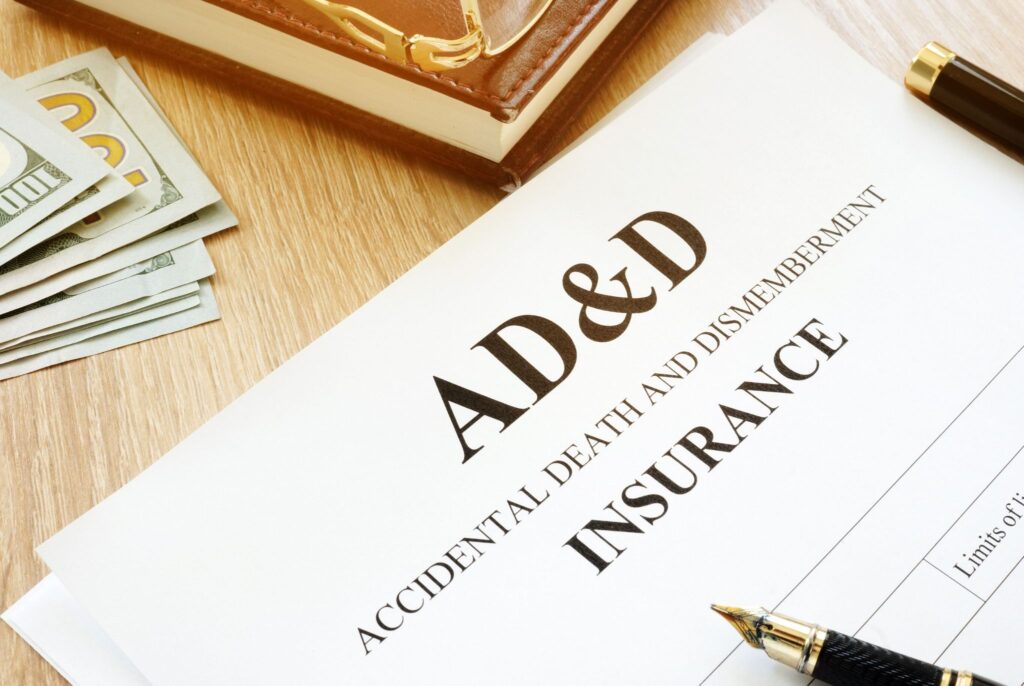
According to the Centers for Disease Control (CDC), unintentional injuries are the third leading cause of death in the United States and in the state of Louisiana. Accidental death and dismemberment insurance (AD&D) may help ensure your family’s financial security if you perish in an accident or become permanently disabled due to dismemberment.
But AD&D policies and claims can be complicated and are very different from regular life insurance policies. It is important to understand the difference between these two forms of life insurance.
What is Accidental Death and Dismemberment Insurance?
AD&D insurance is typically a rider to a life or health insurance policy, and it covers the accidental death or dismemberment of the policyholder.
What is Accidental Death?
Just as the name suggests, an AD&D policy defines an accidental death as a death caused by an unforeseen circumstance not related to your health. In other words, the death cannot be related to or caused by an illness or other health condition.
Accidental death covers unlikely and exceptional circumstances, such as:
- Traffic accidents
- Exposure to the elements
- Falls
- Homicide
- Drowning
- Accidents involving heavy machinery
The AD&D policy will detail what events it covers and what events are not covered.
If an accidental death occurs, the beneficiaries will receive benefits from both the rider and the life insurance policy. These policies typically have payout limits, but generally, they are the same or similar to the value of the life insurance policy. So, beneficiaries would receive twice the amount of the life insurance policy’s value.
What is Defined as Dismemberment?
If an accident isn’t fatal but causes dismemberment, an AD&D policy will provide benefits. A portion of the benefit would be made payable to the beneficiary (the policyholder) based on the severity of the loss or dismemberment. This is known as a scheduled benefit.
Every policy has its own rules when it comes to scheduled benefits, but here’s a simple example:
- If you lost one arm or one leg, the policy would pay half the death benefit.
- If you lost two or more limbs, the policy would pay the entire death benefit.
Some AD&D policies will also cover the sudden loss of vision or hearing. These same rules apply. If an unforeseen accident causes permanent blindness, you may receive the entire death benefit.
If the full death benefit is paid, the policy will likely be terminated because you’ve exhausted your benefits.
For a free legal consultation, call (225) 201-8311
How Does AD&D Differ from Regular Life Insurance?
AD&D policies offer limited coverage for unlikely circumstances, so they are not a suitable substitute for term life insurance. Term life insurance and AD&D are two different types of insurance policies.
- A term life insurance policy will pay out a death benefit whether the death was an accident, due to natural causes or because of an illness.
- An AD&D policy will only pay out a death benefit if an accidental death or dismemberment occurs.
Term life insurance will pay out a death benefit if the policyholder dies within a certain period of time – no matter the cause of death (with the exception of suicide). A term life insurance policy ensures that your family receives a payout in the event of your death.
Does this mean that an AD&D policy is worthless? No. In the event of an accidental death or dismemberment, an AD&D policy will provide additional benefits for your family.
AD&D Claim Denials
Claim denials are common with AD&D policies because the policy will not pay benefits if the person died due to natural causes. In many cases, insurance companies will try to argue that a death was natural or intentional to avoid having to pay out death benefits.
- If an accident kills the policyholder but not right away, beneficiaries may never see their benefits.
- If a person has a heart attack while driving and winds up in a fatal accident, the insurance company may argue that the heart attack caused the death and deny benefits.
- Unintentional medication dosage mix-ups can be fatal, but the insurance company may consider the death a suicide and deny the claim, even though the death was accidental.
It’s in the insurance company’s best interest to pay out as little as possible or to deny claims to avoid having to pay death or dismemberment benefits.
AD&D claims and denials are complex and extremely difficult to fight on your own. Insurance companies will take every step to protect their profits and have extensive legal resources that they will use against you. If your claim has been denied, an AD&D insurance lawyer can help you navigate the appeals process or file a lawsuit to recover your benefits.
For the best chance of a positive outcome, it’s important to contact a Louisiana AD&D insurance lawyer as soon as possible.
Call or text (225) 201-8311 or complete a Free Case Evaluation form

